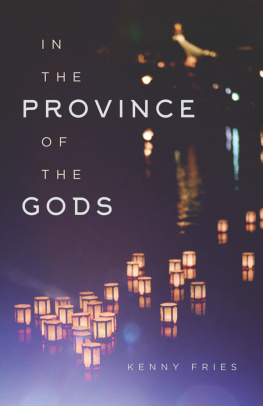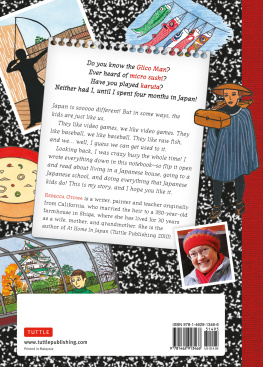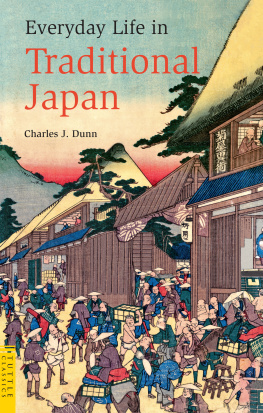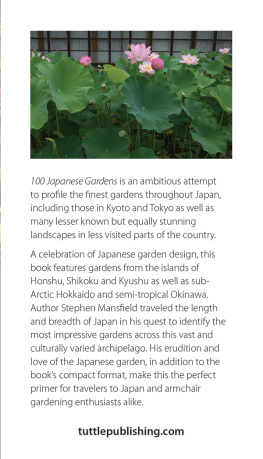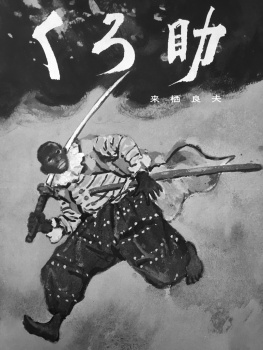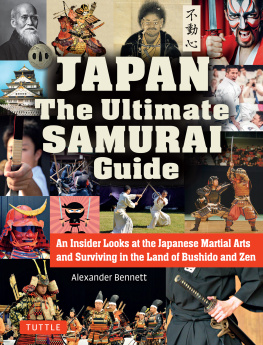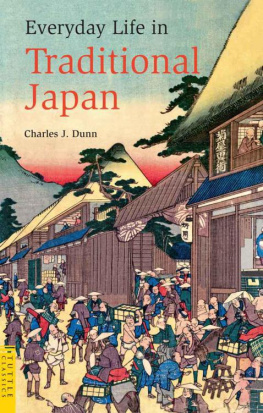More praise for In the Province of the Gods
Like the best memoirs, it reminds us of the genres twinned truths: first, that the surest way to discover the self is to look out at the world, and second, that the best way to teach others about something is to tell them not what it is, but what it means to you. Friess deft, questioning prose is as full of compassion as curiosity, and his revelations about himself are no less compelling than what he learns about Japan.
Dale Peck,
author of Visions and Revisions: Coming of Age in the Age of AIDS
Elegant and probing, In the Province of the Gods reads like the log of an early adventurer charting a newly discovered land. History, sexual politics, disability, and wooden fortune sticks are blended into an unexpected, tightly written exploration of Japanese culture. Fries may be the guy on the journey, but were the ones making the discoveries.
Susan R. Nussbaum,
author of Good Kings, Bad Kings
LIVING OUT
Gay and Lesbian Autobiographies
The University of Wisconsin Press
1930 Monroe Street, 3rd Floor
Madison, Wisconsin 53711-2059
uwpress.wisc.edu
3 Henrietta Street, Covent Garden
London WC2E 8LU, United Kingdom
eurospanbookstore.com
Copyright 2017 The Board of Regents of the University of Wisconsin System
All rights reserved. Except in the case of brief quotations embedded in critical articles and reviews, no part of this publication may be reproduced, stored in a retrieval system, transmitted in any format or by any meansdigital, electronic, mechanical, photocopying, recording, or otherwiseor conveyed via the Internet or a website without written permission of the University of Wisconsin Press. Rights inquiries should be directed to .
Printed in the United States of America
This book may be available in a digital edition.
Library of Congress Cataloging-in-Publication Data
Names: Fries, Kenny, 1960- author.
Title: In the province of the gods / Kenny Fries.
Other titles: Living out.
Description: Madison, Wisconsin: The University of Wisconsin Press, [2017] | Series: Living out: gay and lesbian autobiographies
Identifiers: LCCN 2017010427 | ISBN 9780299314200 (cloth: alk. paper)
Subjects: LCSH: Fries, Kenny, 1960-TravelJapan. | Authors, American21st CenturyBiography. | Gays with disabilitiesUnited StatesBiography. | Gay menUnited StatesBiography. | Authors with disabilitiesUnited StatesBiography. | People with disabilitiesJapanSocial conditions.
Classification: LCC PS3556.R568 Z46 2017 | DDC 818/.5403 [B]dc23
LC record available at https://lccn.loc.gov/2017010427
All Japanese names are written in the traditional order of family name followed by given name. Transliterations from the Japanese are based on the modified Hepburn system, except for arigato, which is a simplified version of Hepburn.
ISBN-13: 978-0-299-31428-6 (electronic)
for
Mike
who was there
We are born, so to speak, provisionally, it doesnt matter where; it is only gradually that we compose, within ourselves, our true place of origin, so that we may be born there retrospectively.
Rainer Maria Rilke
... every day is a journey, and the journey itself is home.
Bash
Prologue
In the Province of the Gods
If ever I needed the presence of the gods, now is the time.
I arrive at Izumo Taisha, the second-most-sacred shrine in Japan, in early October. According to legend, the sun goddess Amaterasu built the original shrine. In every other part of Japan, the tenth month of the year is known as kannazuki, the month without gods, because every October all eight million Shinto deities visit Izumo Taisha for kanari matsuri. The gods are now in residence.
I stand under the graceful wooden torii marking the entrance to the shrines forested grounds, then, with my cane, maneuver down the Seki-no-Baba, an avenue of gnarled pines, leading to the shrines central compound.
I look up: hanging over the entrance to the Oracle Hall is the giant shimenawa, a traditional twist of straw rope. The sculpture of straw is immense: five thick twists clinging, with the assistance of six roped rings, to a large wooden rod the same color as the straw, which itself is attached by four thinner roped rings to a dark-brown wooden beam. Descending from the three largest twists are three cone-shaped bells.
I reach for one of the twists and ring the bell.
Ringing the shrine bell announces a visitors presence to the resident deity. The gods now know I am here.
Ever since my doctor told me what I did not want to hear, all I can think is: I dont want to die.
I pull the rope and ring the bell againthis time louder, the echo reaching toward the honden, the inner shrine, directly behind the Oracle Hall.
I follow the sound of bronze reverberating through the air until it dissipates in front of a steep covered wooden staircase leading into the honden. The present structure, with its projecting gray wooden rafters shooting out of the roof, is in its twenty-fifth incarnation. Only half as high as its pre-Buddhist original, at twenty-four meters it is still the countrys tallest shrine. Entrance into the honden is allowed only during special ceremonies. Lafcadio Hearn, one of the first expatriate writers to live in Japan, lived only thirty-three kilometers away in Matsue. He was the first foreigner granted the privilege to enter the honden.
I peer through the Eight-Legged East Gate, decorated with unpainted wooden carvings and bouquets of gohei, lightning-shaped white paper hung at Shinto shrines to ward off evil spirits, and look into the Holy of Holies Hall, where only the head priest can go.
I reach in my pocket for a particular coin. Two months ago, I found a penny in the hospital room where the man in the bed next to me died. Coins have taken on a larger meaning.
I close my eyes and pray for what I know might be possible: to see the best way through this, to find a way to live with the ever-present knowledge of death as my constant companion.
I bow and clap and throw the coin into the offering box.
I hear the coin rattle to the bottom of the box.
My prayers are urgent. The coin at the bottom of the wooden box could be my soul.
I think how I first came to Japan to study the lives of disabled people in Japan. Ian was supposed to accompany me. But by the time I arrived in Japan, circumstances had changed.
During my first stay in Japan, my research proved fitful, difficult. Instead, single for the first time in eighteen years, I discovered not only things about this foreign culture but also new ways to see my different body and myself.
Now, on my second visit, circumstances have changed yet again; I came very close to not returning at all.
But Im getting ahead of myself. Before I first arrived in Japan, I had no idea I would be going halfway around the world, alone.
I
Floating
The Japanese reticulation of space insists on inside, outside, man-made nature made a part of nature, a continuing symbiosis. Even now, the ideal is that the opposites are one.
Donald Richie
One
Genkan
I am alone in the house when the phone rings. In no mood to talk to anyone, I let the machine get it.
When the outgoing message is over, I hear an unfamiliar voice: Im pleased to tell you that youve been chosen as one of the artists to go to Japan. Youll be getting confirmation in the mail in the next few days. In the meantime, if you have any questions, give me a call.

